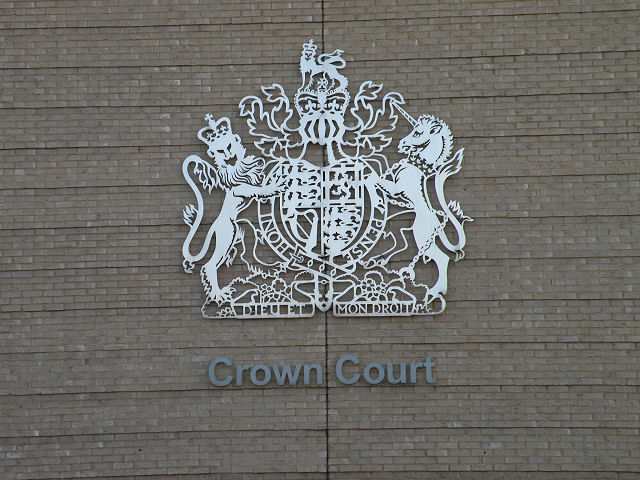New Government Introduces Strike Law Changes
 Since the new Conservative government was elected, there have been announcements that significant changes will be made to the strike laws which are currently in place. When these changes come into effect, any strike which will affect the public services will need to have the support of 40% of the eligible voting union members. As it stands, a strike can be carried out if it has the support of the majority of those who vote.
Since the new Conservative government was elected, there have been announcements that significant changes will be made to the strike laws which are currently in place. When these changes come into effect, any strike which will affect the public services will need to have the support of 40% of the eligible voting union members. As it stands, a strike can be carried out if it has the support of the majority of those who vote.
Unions have responded to the announcement by saying that the new legislative measures will make legal strikes almost impossible. The new percentage will not be calculated from the number of people who vote, but from the total number of union members who are eligible to vote and therefore could have voted.


 The partnership between the Crown Prosecution Service (CPS) and the police is vital to the prosecution process in the United Kingdom. In order for a prosecution to proceed against a person, company or institution, the police must first gather all the information and evidence necessary to support a criminal investigation, and the CPS will then use this information to decide whether or not the prosecution should go ahead.
The partnership between the Crown Prosecution Service (CPS) and the police is vital to the prosecution process in the United Kingdom. In order for a prosecution to proceed against a person, company or institution, the police must first gather all the information and evidence necessary to support a criminal investigation, and the CPS will then use this information to decide whether or not the prosecution should go ahead. As part of your studies on ILSPA’s Legal Secretaries Diploma course, you have considered the topic of land law. This month, we are reviewing proposals to change rights over land. These changes affect public rights of way and were part of the government’s Deregulation Bill 2013 – 2014.
As part of your studies on ILSPA’s Legal Secretaries Diploma course, you have considered the topic of land law. This month, we are reviewing proposals to change rights over land. These changes affect public rights of way and were part of the government’s Deregulation Bill 2013 – 2014. Online resources for legal research can often be hard to navigate. If you are searching for a specific case summary or information on one particular act, you may find yourself looking for a very small needle in a very big haystack. The recently relaunched Emplaw website, however, seeks to change that by offering a clean, easy-to-use interface and focusing on one area of law rather than all of them.
Online resources for legal research can often be hard to navigate. If you are searching for a specific case summary or information on one particular act, you may find yourself looking for a very small needle in a very big haystack. The recently relaunched Emplaw website, however, seeks to change that by offering a clean, easy-to-use interface and focusing on one area of law rather than all of them. Spring is officially upon us, and we can therefore reflect on how the winter has affected legal services to clients. Winter is the most common time for personal injury accidents to happen due to ice and snow. The first question on some people’s mind would be ‘Whom can I sue?’ Whilst a civil litigation personal injury claim may be considered, one must not forget that there are also other aspects of private law which could be considered, including Occupiers’ Liability.
Spring is officially upon us, and we can therefore reflect on how the winter has affected legal services to clients. Winter is the most common time for personal injury accidents to happen due to ice and snow. The first question on some people’s mind would be ‘Whom can I sue?’ Whilst a civil litigation personal injury claim may be considered, one must not forget that there are also other aspects of private law which could be considered, including Occupiers’ Liability. Most consumer law was written about thirty years ago and does not clearly cover all types of modern contracts such as those dealing with digital content like music, software or games. New measures to enhance consumer rights and make them easier to understand were unveiled by consumer minister Jo Swinson in early 2014.
Most consumer law was written about thirty years ago and does not clearly cover all types of modern contracts such as those dealing with digital content like music, software or games. New measures to enhance consumer rights and make them easier to understand were unveiled by consumer minister Jo Swinson in early 2014. Over the past year or so, the government has been trying to introduce cuts to the legal aid budget which could have a drastic impact on the number of people entitled to legal aid and the amount of support to which they have access.
Over the past year or so, the government has been trying to introduce cuts to the legal aid budget which could have a drastic impact on the number of people entitled to legal aid and the amount of support to which they have access. On the evening of 4 March 2015, the House of Lords discussed and approved the amendment to the Civil Proceedings and Family Proceedings Fees Order.
On the evening of 4 March 2015, the House of Lords discussed and approved the amendment to the Civil Proceedings and Family Proceedings Fees Order. This year marks a monumental milestone in the political development of the United Kingdom. A document which was first drawn up to appease an unruly bunch of rebel barons and a very unpopular monarch marks its 800th birthday. Eight centuries after the Archbishop of Canterbury drafted the Magna Carta, we still use it as the basis for the unwritten constitution of the United Kingdom.
This year marks a monumental milestone in the political development of the United Kingdom. A document which was first drawn up to appease an unruly bunch of rebel barons and a very unpopular monarch marks its 800th birthday. Eight centuries after the Archbishop of Canterbury drafted the Magna Carta, we still use it as the basis for the unwritten constitution of the United Kingdom. New powers have recently been handed over to a number of different local authorities – including the police, landlords of social housing, and town and district councils – to provide a new approach to anti-social behaviour. These new regulations have been introduced to try to empower victims and to make communities safer.
New powers have recently been handed over to a number of different local authorities – including the police, landlords of social housing, and town and district councils – to provide a new approach to anti-social behaviour. These new regulations have been introduced to try to empower victims and to make communities safer.